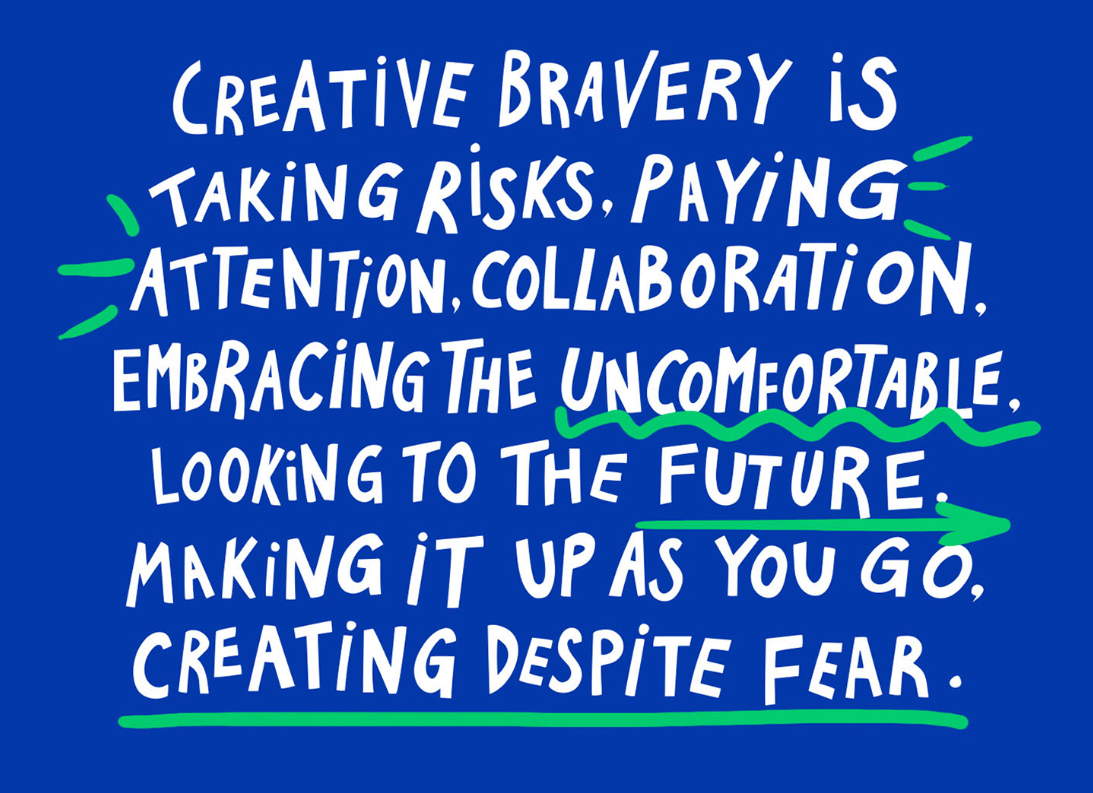When the cookie crumbles sometime in 2022, it impacts a wide swath of digital marketing practices and policies.
All digital marketing firms; AdTech, agencies and publishers need to evolve beyond cookies – the primary data engine for all things AdTech.
Yet the road to ID salvation is paved with confusion and chaos, shining a spotlight on the irreconcilable tension between Users’ right to control their own data and AdTech’s presumed right to control all that data.
More than that, when we pull back the lens, we can see this cookie issue is a feature of a larger and systemic AdTech trust failure with its jumble of technologies, black boxes and murky supply chains.
With so many dark spaces to hide a lot of nefarious actors and behaviors, so so much time, money, creativity and energy is diverted to manage AdTech that it makes everyone question if the ROI juice is worth the AdTech squeeze.
Which brings us back to the crisis du jour – the dismantling of the cookie as the primary targeting data.
Google explains this move to empower Users with more control over their data and privacy. To power this cookieless future, Google has “helpfully” created standards within their “Privacy Sandbox” so that ad targeting, measurement and fraud prevention can happen according to the standards Google set (we all know how this ends).
Google’s technical centerpiece is a “trust API” where logged in Chrome/ Gmail Users are asked to fill out a CAPTCHA-like program so they can be verified as a real human. The catch? A User is “verified” once and then tagged as a “real person” for all future Chrome based activities. (Hmm… what can go wrong – I ask?)
Why did Google make this move?
The motives are simple to understand.
Google needs to relieve some political pressure so it wants to be seen as the leading advocate of User privacy. This ploy is likely to work on Capitol Hill but this “privacy advocacy” posture is a charade. Google’s presumed privacy high road is based on its claim that users have “opted in” because they have logged into Chrome/ Gmail.
This logic leap; log-in action equals opt-in consent; is stretched beyond the breaking point so as to render it preposterous.
That said, the business advantage for Google is tremendous. No one comes close to having such a large pool of “logged in Users” as Google since most of us are logged in all the time. If all goes according to Google’s plan, they will emerge from this kerfuffle stronger than ever with a virtually unassailable lock on targeting “people” in digital media.
What’s the industry’s response?
AdTech firms realize the existential danger and aren’t just rolling over dead. They are joining forces in very complex and unexpected ways.
Many many AdTech firms are touting some “mega” ID alternatives to Google’s “cookieless” future. Under the banner of Unified ID or Universal ID or Shared ID (for publishers), different alliances are forming between companies like Nielsen, Trade Desk, OpenX, Criteo, publishers of all stripes and data providers like LiveRamp, Lotame or Epsilon.
AdTech firms and publishers are creating an “opt-in” User consent model by considering any User who logs into one publisher as having consented to be tracked by all publishers in the large publisher networks they are forming. In effect, we have cookie tracking v2.0 – same “cookie” girlfriend but in a new “cookieless” dress.
The Trade Desk explained it this way: “ID framework will be built from hashed and encrypted email addresses, while remaining open and ubiquitous, and at the same time ensuring consumer privacy and transparency.”
So much for any illusion of real “opt-in” paradigm. *SIGH*
It doesn’t end there. There’s Google’s TURTLEDOVE (Two Uncorrelated Requests, Then Locally-Executed Decision On Victory) proposing how interest group in advertising could replace User-level advertising. There’s Criteo’s SPARROW proposal (Secure Private Advertising Remotely Run On Webserver) which is a proposal in response to Google’s TURTLEDOVE privacy framework. We’re still not done. We have to contend with W3C, the exchanges, DSPs and publisher networks who are trying to hang on to their already battered revenue.
Is your head ready to explode yet? It should be because I’ve barely scratched the surface. Seriously.
The whole industry has been built around getting more “people” tracking data, processing more “people” tracking data and selling all this “people identifying” data, no wonder it is so tough to figure out.
The unfortunate consequence of these Mega-ID initiatives is that the level of tech complexity needed to pull this off is off the rails nuts.
Yet tracking people is so fundamental to how AdTech operates today that the industry will do anything (and I mean anything) to maintain a cookie environment – albeit with a different name – even when it is clear that people don’t want to be tracked.
With all this complexity, you can expect more fraud and an even murkier ad supply chain.
For all the minds and money who have thrown themselves at this problem, it seems no real effort was made to consider any other alternative other than continuing the practice of tracking Users, a clear trust violation.
Worse, this bankrupt position increases complexity yet is being packaged up as a real change in AdTech.
“In order for the open web to truly thrive, marketers and publishers need a solution to target and package audiences, whether cookies are here or not,” as OpenX explains. “It’s exciting to work with industry leaders to build and support a framework that will enable this with Unified 2.0.”
The posturing continues from The Trade Desk.
“As the industry continues to galvanize its support for Unified ID 2.0 as one solution for the future of identity, it’s exciting to see industry leaders like OpenX work together to preserve the open internet. Unified 2.0 represents an open source and interoperable collaboration, rooted in a strong commitment to create a better standard for identity that gives more transparency and controls to publishers and consumers.”
The a priori assumption is that digital media MUST be able to track “people” made kosher via this sham of an “opt-in” architecture.
The perverse tragedy here is that AdTech’s priority is to protect its flank without any real improvement to User control or privacy.
The imagination gap means no innovation from today’s AdTech leading firms.
It’s a huge blow to me that the industry missed an opportunity to create a better version of great targeting in a cookieless future respecting people’s genuine desire to not be tracked. It’s also painfully clear why alternatives have a hard time breaking out.
A lot of AdTech stakeholders have a lot to lose if tracking people became an irresponsible and unacceptable business practice.
No wonder millions in marketing has been spent by AdTech to obscure the fact that the Internet is a content serving engine – it was never designed to be a “people serving” engine. It makes sense why it is so hard to track people and why it was always a bad idea – technically and ethically. Yet AdTech whitewashed this reality with techno mumbo jumbo like “PII” or other shallow “anti-tracking” solutions.
This is why I can’t get behind any of the current initiatives because it puts AdTech profits first and Advertisers’ desire to be ethical marketers and Consumer desire to be free to roam the Internet without being tracked – a very distant second.
Today’s AdTech firms that fight this “content-centric” foundational truth of the Internet, crippling their ability to deliver for Advertisers. No amount of PR spin can alter this stunning lack of imagination.
Therefore, it is left to outlier companies to drive home a new vision for AdTech that leverages the DNA of the Internet as a content serving engine.
Newer, outlier ventures revolve around a content-centric architecture, clearing the way for evolving AdTech into a trust-based ecosystem.
- Instead of buying programmatic impression scale, new classes of DSPs can place ads about Father’s Day Gifts on pages that are actually talking about Father’s Day gifts. Keywords and Interest Classification targeting don’t get you there. Nor does tracking people who have demonstrated no real time topic interest.
- Instead of channel attribution that tracks people behaviors, shift to an attribution model that holistically looks at the topic journey to conversion.
- Instead of trying to create complex User privacy processes for targeting functions, shift to targeting that uses content data avoiding all the complication of managing consent, GDPR et al. This approach also provides a data architecture for 1st party data practices.
A call to action.
The industry is trapped in a scale/ cookie targeting model that is proven to be fraught with performance and fraud issues. Hope for new ideas lies with nextgen AdTech firms that focus on content engagement and ethical media buying.
One approach is a content-centric tech stack that can redefine “scale” to mean less impressions but better quality ones; less fake clicks but more real clicks; and less blind data with questionable provenance but a roadmap to a 1st party data architecture.
A topic centric AdTech stack is clearly not in the financial interests of today’s largest AdTech firms and their investors but it is in the best interests of Advertisers and digital audiences.
By nurturing real and viable alternatives to the current AdTech ecosystem we can raise our standard for how trust in AdTech V2.0 must emerge.
1. Allocate generous budgets to test real alternatives to current AdTech initiatives with new options that are emerging such as; 100% fraud detection – not sampling (Method Media Intelligence), topic data (Topic Intelligence.ai) and firms that check ads for brand safety (Check my Ads).
2. Reject “scale” as defined by programmatic media and adopt new scale metrics around specific business outcomes like customer acquisition. Many AdTech firms talk a good outcome talk but obscure a lot of data so a Brand, for instance, never really knows what a CPA should be – versus what the AdTech firm tells them it is.
3. Scrutinize current contextual targeting options such as keyword matching or interest classification to understand their contextual limitations, so necessary in a post cookie world. Test newer DSPs that use topic data to match “niche” topics a brand should own, in human terms. This type of DSP chases topics – not people. Massive difference.
4. Be true to Internet’s DNA as a content serving engine by investing in new integrated platforms that link topic targeting data, contextual ad buying that is “anti-scale” and a content-centric (not channel specific) attribution module for a seamless, simpler and transparent approach to campaign measurement. Check out https://engagesimply.com/solutions/#ux-evolution to see how topic data + topic buying can work.
5. Embrace the reality that two parallel AdTech stacks can co-exist; “people-based” targeting and “topic-based” targeting; each with their killer applications. “People-based” targeting makes sense for very broad campaigns that need to target virtually everyone. “Topic-based” targeting is best used when the conversion journey is content centric as is the case with B2B or complex B2C sales funnel marketing campaigns like financial services, insurance and even cannabis. This topic targeting paradigm needs robust topic data like you can find at Topic Intelligence. It becomes a new type of targeting data that can be applied from everything to PPC to programmatic media. This type of data tracks topics – never people.
In 1988, an author named Joseph Tainter wanted to explain why societies collapse. He argued that societies collapse when social complexity reached a point of diminishing returns. In other words, the benefits of living in a culture were not worth the “complexity price” that was required.
Given current course and speed of AdTech v1.0, it seems to me that this ecosystem is primed for collapse given the increased complexity needed to get any job done. The “Mega” ID initiatives will make the complexity conundrum more acute as they come online.
Courageous leaders will nurture AdTech that can be simpler and trusted so consumers and Advertisers are well-served.
> AdTech vendors will never be consumer advocates.
> AdTech will never demand better from the tech supply chain.
> AdTech will never place bets on nextgen solutions that will undermine their current revenue.
Let’s make 2021 this our “drop the mic” moment. Time to take marketing back from the vicissitudes of AdTech.





